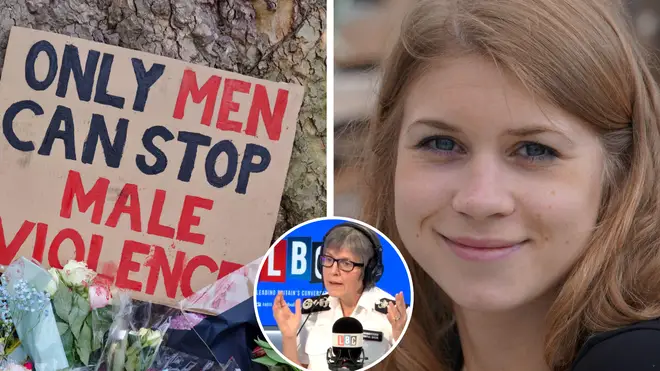
Tom Swarbrick 4pm - 6pm
15 December 2021, 01:04

Men who pose the highest risk of violence to women and girls will be actively targeted by police under new national plans, drawn up in the wake of outrage sparked by the murder of Sarah Everard.
Chiefs have drawn up a framework to boost the police response to crimes committed against women and girls which includes the use of measures such as electronic tagging.
The framework consist of three pillars - building trust, going after perpetrators and making life safer for women and girls.
New plans will see forced draw up lists of individuals who pose the highest risk to women and girls and work to stop them committing crimes, using enforcement measures including electronic tagging.
Under the new proposals, officers who retire after being found guilty of gross misconduct, will also face being stripped of their pensions.
The national police coordinator for violence against women and girls, Deputy Chief Constable Maggie Blyth, acknowledged that there had been a "hammer blow" to trust in the service.
Read more: Cressida Dick 'regrets' trust lost in Met following Sarah Everard murder
Read more: Exclusive LBC poll: Only half of Londoners trust the Met

Alia Butt: Violence against women is a 'systemic issue'
She said: "This year has been a watershed moment for society and policing in how much more needs to be done to radically reduce violence against women and girls.
"Our legitimacy has been deeply damaged by Sarah Everard's murder by a serving police officer, the abhorrent and inappropriate behaviour of officers photographing and sharing images of Bibaa Henry and Nicole Smallman's dead bodies, and other examples of police officers abusing their position for sexual gain.
"In policing, we are determined to seize this moment to make fundamental and long-lasting change."
The plans also reveal that forces are expected to see an increase in the number of officers who turn whistleblower as they are encouraged to report each other for inappropriate sexist behaviour.
The chief executive officer of the College of Policing, Chief Constable Andy Marsh, said he expects to see an increase in whistleblowing as colleagues report each other for inappropriate behaviour.
Read more: Covid-19 booster jabs: Who is eligible and how can you book?
Read more: Huge demand for Covid boosters as all adults in England become eligible
Read more: All countries removed from red list as travel measures 'less effective' stopping Omicron arriving

LBC poll reveals less than half of London women say they trust the Met
He said that "a call-out culture" is as important as effective vetting of officers.
Concerns were raised about vetting after it emerged that the officer who killed Miss Everard, Wayne Couzens, had been vetted by three different police forces, and that allegations of indecent exposure from 2015 and days before the murder were not properly investigated.
Mr Marsh said: "I don't believe that we should put all of our hopes and expectations in effective vetting.
"It's a really important safeguard, it's important as the standard and it's complied with and done properly.
"But actually what is just as important, if not more important, is the culture and ethics within the service.
"A call-out culture that doesn't tolerate sexism, let alone misogyny.
"Doesn't tolerate inappropriate, sexualised behaviour towards colleagues or indeed towards members of the public."
All police forces in England and Wales will be expected to draw up their own local plans along the lines of the national framework by March.